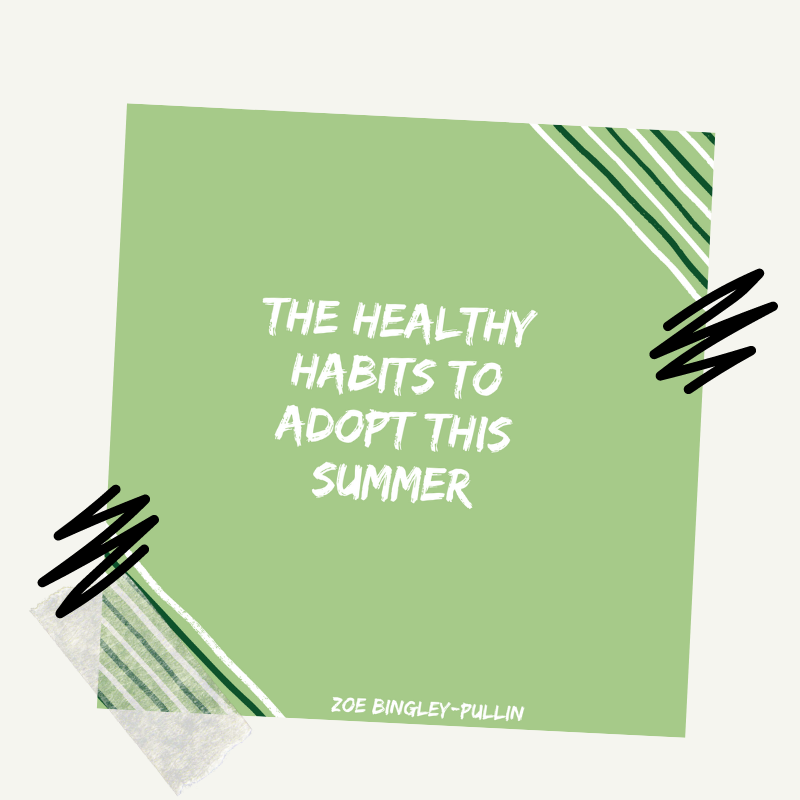Summer is just around the corner, although it very much feels like it has already arrived in some parts of Australia!
Summer in Australia also means the start of the festive season and holidays for most of us.
This can mean our routine changes and therefore also our diet and the healthy habits adopted during the year.
We can be under increased stress, eat less healthy foods and get less restful sleep.
With that being said, to help you keep on top of your health over the coming months, here are the healthy habits, recommended by me, to adopt this summer:
Add a serve of omega-3 fats to every meal
It’s more than likely, many of you are aware of the need for omega-3 fats in our diet. If not, put simply, they are fats, which cannot be made by the body, and therefore dietary intake is essential. In summer, they are particularly important to consume because we spend more time in the sun. A diet rich in omega-3 is believed to dampen down damage caused to the skins extracellular matrix including sun exposure, ultraviolet radiation and oxidative stress. Therefore, to take care of skin health and appearance, eating omega-3 rich foods such as fatty fish, hemp seeds, chia seeds, walnuts and flaxseeds may assist.
The early bird catches the worm
During summer, the high temp can be an excuse people use not to exercise. However, in summer the sun rises much earlier and before the temperature gets too hot, which makes the mornings, the ideal time to exercise. Exercise for me sets the tone of my day and helps to clear my mind. If you don’t already exercise in the AM and find exercise is falling by the wayside, I encourage you to give this a go. After doing this for a week it will become second nature to get up and get going.
Eat magnesium rich foods daily
While the festive season is relaxing for many, the lead up to it can be stressful and more demanding on our nervous system. A key mineral to make sure you are eating plenty of over summer is magnesium. Magnesium is know for its ability to help the body adapt to stress by reducing the release of hormones which lead to over activation of the hypothalamic-pituitary-adrenal axis, which plays a role in our stress response. Over activation of this axis is associated with increased stress and lower stress handling which can lead to poor mental health. Magnesium is also a co-factor necessary to synthesise neurotransmitters such as serotonin and dopamine, a deficiency in either of these can lead to poor mental health including symptoms of depression and anxiety. Food sources of magnesium include cashews, leafy greens, almonds, eggs, figs, soy beans, molasses and legumes.
Eat B1 and B3 rich foods daily
Similar to magnesium, our demand for B-vitamins can increase over summer if we choose to enjoy more alcoholic beverages then usual. B-vitamin rich foods, especially, B1 and B3, can help metabolise alcohol and acetaldehyde and as a catch 22, alcohol depletes B-vitamins, so hence the need to be mindful of your intake! Food sources include asparagus, legumes, nuts, wheat germ, wholegrains, almonds, chicken, eggs, sunflower seeds.
Try new plant foods
I have said it before and I will say it again – plant diversity is the greatest contributor to a healthy gut microbiome. This means the larger range of different plant foods we eat daily, weekly, monthly, the better gut health we can achieve. Come summer, salads and smoothies are back on the menu. These can make for fantastic ways to change up which plant foods you are eating. For example:
- Salads – swap up your grains (rice, teff, quinoa, farro, freekeh, soba noodles etc), nuts/seeds, add legumes (chickpeas, lentils, black beans, butter beans etc) and veggies added. Try spices in your dressing eg turmeric, tahini and honey!
- Smoothies – change the fruit you use, try different plant-based milks and different nuts/seeds or nut butters
Practice Gratitude Daily
2020 has been a tough year for so many, but we can all still find things to be grateful for. Being grateful is linked to a number of health benefits such as improved mood, more positive outlook on health, improved sleep and improved heart health. It makes sense why, when we are grateful, its hard to feel anxious and negative. Keeping what you are grateful for in the forefront of your mind can also be a helpful tool to deal with stressful periods. I encourage you to try writing down 5 things you are grateful daily either upon rising or when going to bed and see what change it makes to your health and happiness.
